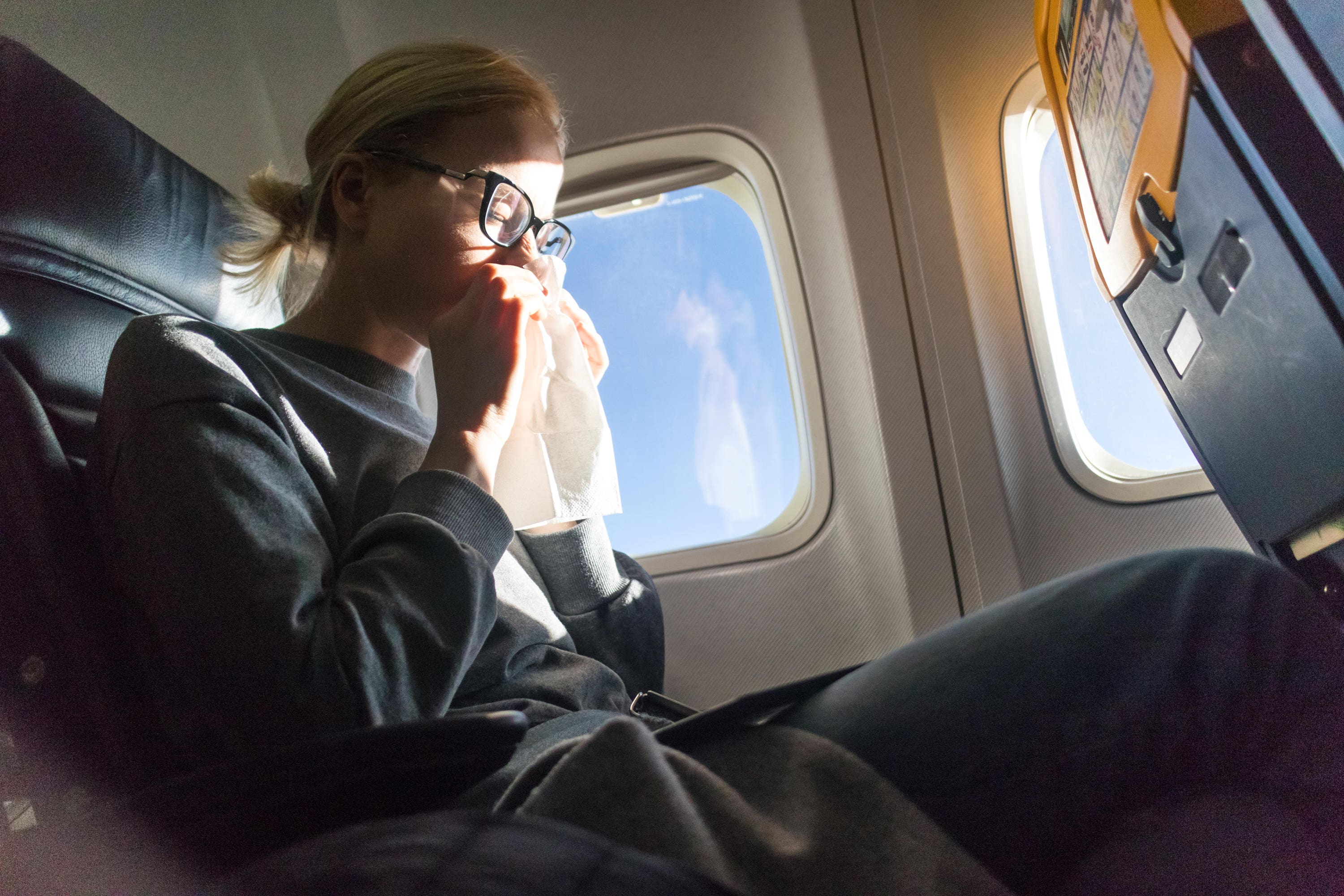Holiday hygiene horrors: Summer health risks to avoid, from flying to hotels
Experts explain how to stay safe while travelling. By Katie Wright.

Nobody likes getting sick, and illness on holiday is even worse – who wants to waste their precious vacation days lying in bed when they could be out having fun?
Unfortunately, the chances of catching a bug can be high when you’re travelling.
From airports and planes crammed with passengers to hotel rooms and restaurants with questionable cleanliness (even if it’s not visible to the naked eye), no wonder so many of us end up with the lurgy abroad.
Here, health experts discuss the major health risks that occur on summer holidays and how to avoid them.
Airports
“Airports often become crowded and therefore they present multiple hygiene risks,” suggests Dr Donald Grant from The Independent Pharmacy.
“Touching surfaces, using airport bathrooms and being in close proximity to others can cause bacteria to spread, so it’s important to be hygiene-alert.”
Plus, having to hand your passport, boarding pass and luggage to different staff members increases the number of touchpoints throughout your journey.
Dr Angela Rai, GP from the London General Practice recommends regularly washing your hands or applying hand sanitiser as you make your way through the airport.
She says: “Washing your hands or using hand sanitiser helps reduce the risk of transmission of lots of different infections, including viral infections, coughs and colds and potentially gastrointestinal infections as well.”
Flying
“If someone is sitting next to you [on an airplane] and they have a cold, it may well be that you might catch one,” says Dr Preethi Daniel, deputy medical director at London Doctors Clinic.
“There are hundreds of viruses that cause illness and the fact that you are mixing with people from all over the world means exposure to viruses and bugs your body may not be used to already.”
It’s not only airborne bugs that you have to worry about, says Grant: “Again, it’s important to wash or sanitise your hands frequently during your flight, especially before eating or drinking, after using the bathroom, or if you’ve touched your armrest, tray table or TV screen.”
As an extra precaution, you might also want to wipe down your down your table and armrests with an antibacterial wipe.
Hotel rooms
“While all hotel rooms should be thoroughly cleaned between each guest’s stay, you can never be fully sure that your room is bacteria-free,” says Grant.
“To be on the safe side, take some disinfectant wipes and give the surfaces a good wipe down when you arrive — and don’t forget the TV remote, which may have been handled by hundreds of people without being cleaned.”
Be extra careful with eating and drinking utensils in your room, he adds: “You should avoid using drinking glasses or mugs provided by the hotel without cleaning them thoroughly first.”
Food and drink
When eating and drinking at local spots abroad, Daniel’s advice is to “check for cleanliness even in established restaurants; paying particular attention to the state of tablecloths, cutlery, glasses and whether the tables are wiped down properly”.
Look out for flies on food as well, she warns: “They are often loaded with pathogens as they do not discriminate between feeding on food or faeces.
“E. coli, salmonella or shigella are some of the most common causes of gastrointestinal infections on holiday.
“Hepatitis A and typhoid are other infections you can contract from contaminated food or water.”
Never drink tap water unless you know it’s safe, and beware of tap water being used in food and drink prep.
Rai says to be careful with ice as it might have been made with tap water and “things like salads and raw vegetables that have been washed in that water”.
“Stick to peelable fruit,” Daniel adds. “Bananas, mangoes and the like are perfectly fine to eat. Avoid anything that has already been peeled, chopped and is waiting in handy takeaway sizes for you.”
Swimwear and towels
“Unpleasant odours and growth of bacteria are some of the risks of poor hygiene when it comes to swimwear and beach towels,” says Daniel. “They trap moisture”, which could leave you vulnerable to “getting infections such as bacterial vaginosis or thrush”.
Grant says: “Be mindful that your towel is likely getting dirtier on holiday than it would be at home — especially if you’re taking it to the beach or the pool. You should change or wash your towel at least every other day.”
And unless you’ve got a different swimsuit for every day of the holiday, you’ll need to give it a wash.
“You’re meant to wash your swimwear after every time you wear it, because you have to treat it like your underwear,” says Rai.
Haven’t got access to a washing machine on holiday? Rai says: “Just gently hand wash your swimwear every time you use it with warm soapy water then hang it up to dry.”
Bookmark popover
Removed from bookmarks